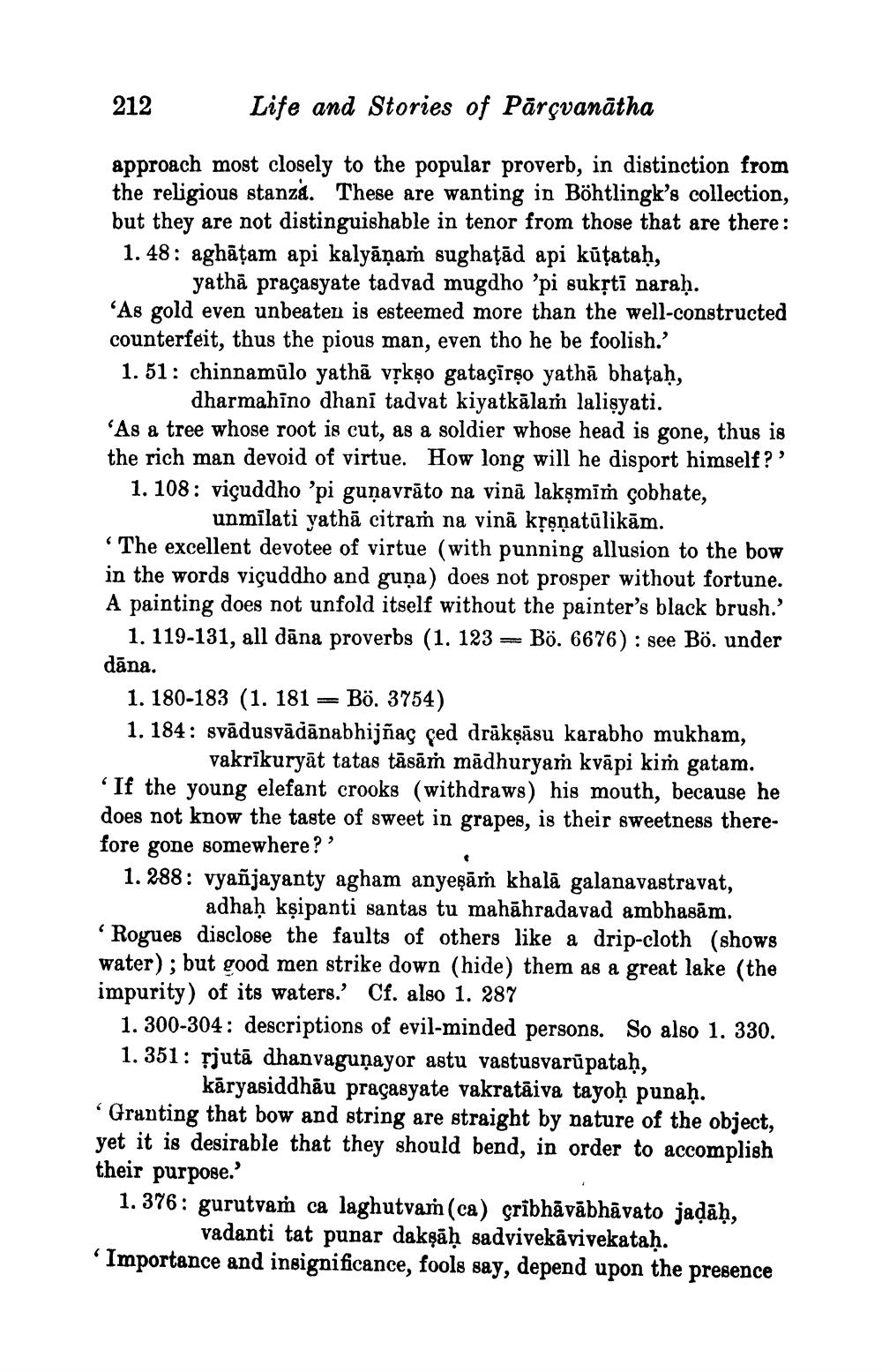________________
212
Life and Stories of Pārçvanātha
approach most closely to the popular proverb, in distinction from the religious stanza. These are wanting in Böhtlingk's collection, but they are not distinguishable in tenor from those that are there: 1. 48: aghātam api kalyāņaṁ sughatād api kūţataḥ,
yathā praçasyate tadvad mugdho 'pi suksti narah. ‘As gold even unbeaten is esteemed more than the well-constructed counterfeit, thus the pious man, even tho he be foolish.' 1. 51: chinnamūlo yathā věkşo gataçīrso yathā bhataḥ,
dharmahino dhani tadvat kiyatkālam lalișyati. 'As a tree whose root is cut, as a soldier whose head is gone, thus is the rich man devoid of virtue. How long will he disport himself?' 1. 108: viçuddho 'pi guņavrāto na vină lakṣmim çobhate,
unmīlati yathā citraṁ na vinā kļšņatūlikām. The excellent devotee of virtue (with punning allusion to the bow in the words viçuddho and guņa) does not prosper without fortune. A painting does not unfold itself without the painter's black brush.'
1. 119-131, all dāna proverbs (1. 123 = Bö. 6676): see Bö. under dāna.
1. 180-183 (1. 181 = Bö. 3754) 1. 184: svādusvādānabhijñaç çed drākşāsu karabho mukham,
vakrīkuryāt tatas tāsāṁ mădhuryam kvāpi kiṁ gatam. 'If the young elefant crooks (withdraws) his mouth, because he does not know the taste of sweet in grapes, is their sweetness therefore gone somewhere? 1. 288: vyañjayanty agham anyeşāṁ khalā galanavastravat,
adhaḥ kṣipanti santas tu mahāhradavad ambhasām. 'Rogues disclose the faults of others like a drip-cloth (shows water); but good men strike down (hide) them as a great lake (the impurity) of its waters.' Cf. also 1. 287
1. 300-304: descriptions of evil-minded persons. So also 1. 330. 1. 351: rjutā dhanvaguņayor astu vastusvarūpataḥ,
kāryasiddhāu praçasyate vakratăiva tayoḥ punaḥ. Granting that bow and string are straight by nature of the object, yet it is desirable that they should bend, in order to accomplish their purpose.' 1.376: gurutvam ca laghutvam (ca) çribhāvābhāvato jadāḥ,
vadanti tat punar dakşāḥ sadvivekāvivekataḥ. 'Importance and insignificance, fools say, depend upon the presence




